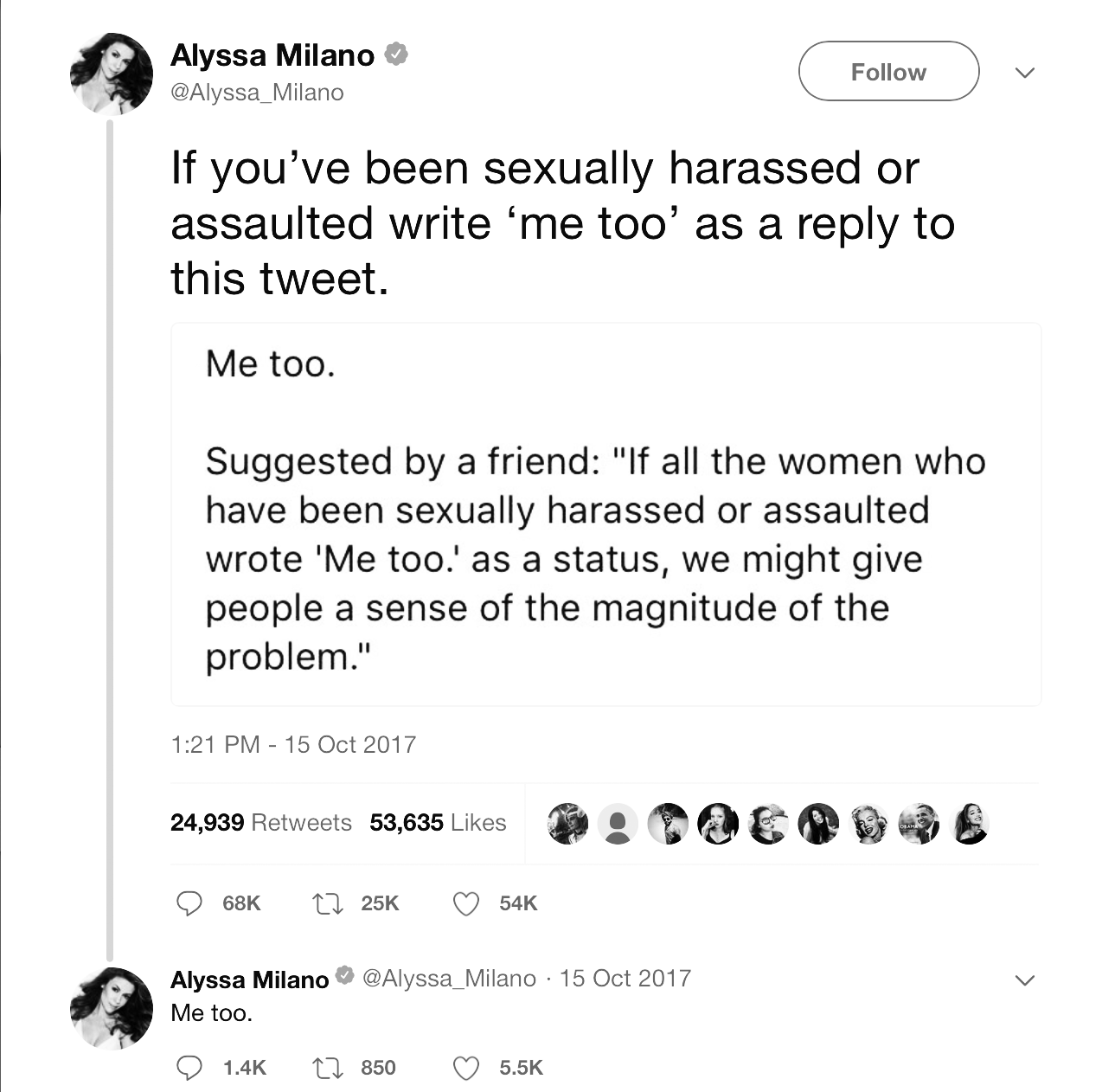Assia Angelini
In 2017, #MeToo, a grassroots movement started by Tarana Burke ten years prior, entered the mainstream and caught aflame when Alyssa Milano used it to rally together survivors in the wake of allegations against Harvey Weinstein.
In the months following, the #MeToo campaign acted as a point of solidarity.
It became an open confessional that brought light to the realities of sexual assault and welcomed understanding and empathy.
Many men who had used their position of power to take advantage of those around them were exposed.
These men were finally forced to face consequences for their actions.
At the Golden Globes, many attendees were dressed in black as a sign of solidarity.
The ‘Silence Breakers’ were named Time Magazine’s people of the year.
With all the attention this movement has put on survivors of sexual assault and the achievements it has helped accomplished in the past year, it can be very tempting to ask, “Okay, What’s next?”
This is typically a question asked after a task has been done to completion, not in the early stages of a project.
Women have faced a disproportionate amount of sexual violence against them for years. It’s not a new thing.
This fact is something that we’re aware of in our day-to-day lives, and it affects the way we raise our daughters, go out with our friends, and live our lives.
One year of spotlight on the issue, one year of men in power facing consequences for once, is not enough.
We cannot just temporarily treat the symptoms and then act like the underlying problem is fixed.
2017 was a year of calling out men in power for their violence against women
Yet, our President has had multiple sexual misconduct allegations filed against him. He was not silent about his belittlement of women. This was known before he was ever voted
into office.
Unless the violent culture against women of all kinds is fixed, women will continue to face violence.
Some will more than others.
There are women who are not wealthy white actresses.
These are women who are not in the position to call out their oppressors.
Until all women no longer have to live their lives with the tacit expectation of violence hanging over them, there is no asking what’s next.
However, if the question is “What can I do?”, the answer is much different.
Societal norms cannot be changed within a year with a hashtag movement. It just doesn’t work that way.
There has to be a willingness to learn and educate oneself on the issues, to speak out, and to get involved.
Part of this is unlearning harmful behavior, which can be difficult to adjust to, but should not be shunned.
It’s easy to double down and become defensive, but that’s not how growth works.
We need to work with ourselves and others to make progress towards a world that is kinder to everyone.
If you want to start small, visit the #MeToo movement’s website, metoomvmt.org, and sign up and donate.
Tarana Burke never intended for the #MeToo campaign to be a hashtag that was here today and gone tomorrow.
She has been working to lend support sexual survivors and young girls of color for over ten years.
As always, social activism should begin from a place of love and compassion.








